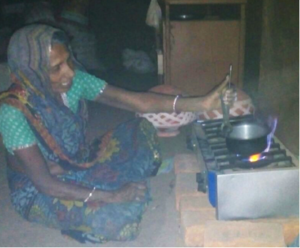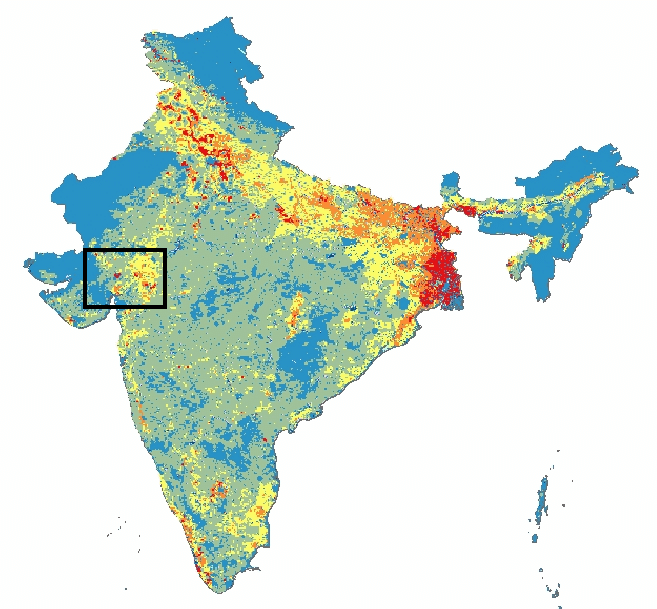Waste-to-Value Pilot for Livelihood Improvement in Gujarat
Waste-to-Value Pilot for Livelihood Improvement in Gujarat in Partnership with Tata Trusts and Factor[e] Ventures
By: Ganesh Kaveeshwar
Woman cooking on Sistema Biobolsa’s biogas.
Factor[e]’s Ventures’ portfolio company – Sistema Biobolsa with the help of Collectives for the Integrated Livelihoods Initiative (CInI – an initiative of Tata Trusts) and Foundation for Innovation and Social Entrepreneurship (FISE) have piloted more than 50 biogas units for families in rural tribal areas of Gujarat, India. Factor[e] Ventures undertook several trips to the field for market feasibility study, installation assistance and post-installation survey. Below are some observations and notes from the field:
A combination of high animal count per household (3-5 cattle on an average), due to an ingrained “dairy cooperatives” culture, and traditional biomass based cooking practices along with favorable climate, makes the selected region (near Dahod, Gujarat) conducive for a biogas based intervention. Sistema Biobolsa’s BB4 digesters produce enough biogas to take care of fuel requirements for cooking 3 meals for a family of 5 from the animal waste collected in each household. The installation of the digesters has resulted in improved quality of life by means of reduced drudgery, reduced exposure to smoke, and increased productivity by offsetting the time required to collect firewood. Post-installation interviews indicate that on average women save 8-12 hours per week due to it. Apart from being affordable with respect to bottled LPG and resulting in lower kerosene consumption, the bio-slurry emanating from the digester is currently being used as a bio-fertilizer which has increased agricultural yields and savings by offsetting the purchase of fertilizers.
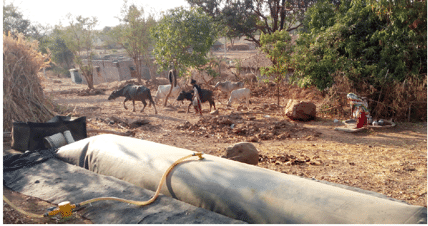
Heat map describing the potential for biogas in India. Region of focus is Dahod, Gujarat within the enclosed boundary.
The field visits also presented a tremendous opportunity for Factor[e] global team to observe the country’s rural landscape first hand. It was observed that farming and animal husbandry have been primary means of income generation for most of the residents. Nearly every farmer farms multiple crops every year, but farm lands are mostly idle during summer due to water availability constraints. While, water shortage remains the biggest perceived livelihood risk, it is easy to observe a lot of inefficiencies and mismanagement of water resources like over-irrigation, lack of proper storage options, leakages in irrigation pipelines and increasing pollution levels of water bodies. According to government data, more than 80% of India’s water consumption is for irrigation and agricultural purposes, with heavy dependence on groundwater, and subsequently rainwater for its replenishment. Depleting water tables coupled with inefficient pumps has put tremendous pressure on energy demand. Most of the rural population in this region has reliable access to single phase electricity from the main grid for domestic demand – mainly for mobile charging, fans, TV and in some cases refrigeration, but this is more of an exception, than norm in India. Productive use appliances like pumps and sometimes larger flour mills are provided a 3-phase power supply through a different grid, which may be available intermittently only for about 6-8 hours a day, making fossil fuel based engines indispensable. Increasing demand for refrigeration and post-harvest loss management technologies was also noticed. However, the most critical issue for agriculture apart from water availability, remains reliable and efficient market linkages.
This was also an opportunity to witness the exemplary work done by CInI for tribal households by making technology innovations in agriculture, water, energy and sanitation space, available to them. The Sistema Biobolsa pilot was one of such technology transfer example, others being lift irrigation schemes, well deepening and recharge management technologies, onsite wastewater treatment technologies etc.
The field visits and the pilot were a good starting point and learning experience for Factor[e] to examine the rural landscape for India and subsequently make strategic investments that can improve the livelihoods of millions of people. Stay tuned – many more notes await!

 Catalytic Investing in Emerging Markets
Catalytic Investing in Emerging Markets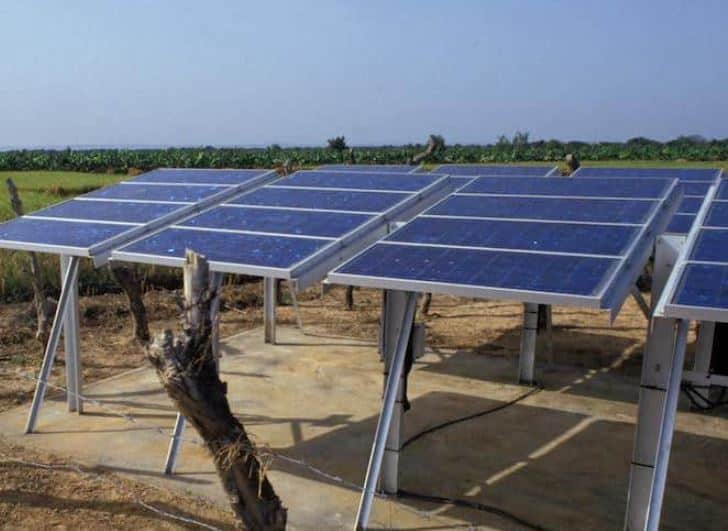 The Nexus of Agriculture and Energy in Africa: Five Lessons for Bridging the Ag-Energy Gap
The Nexus of Agriculture and Energy in Africa: Five Lessons for Bridging the Ag-Energy Gap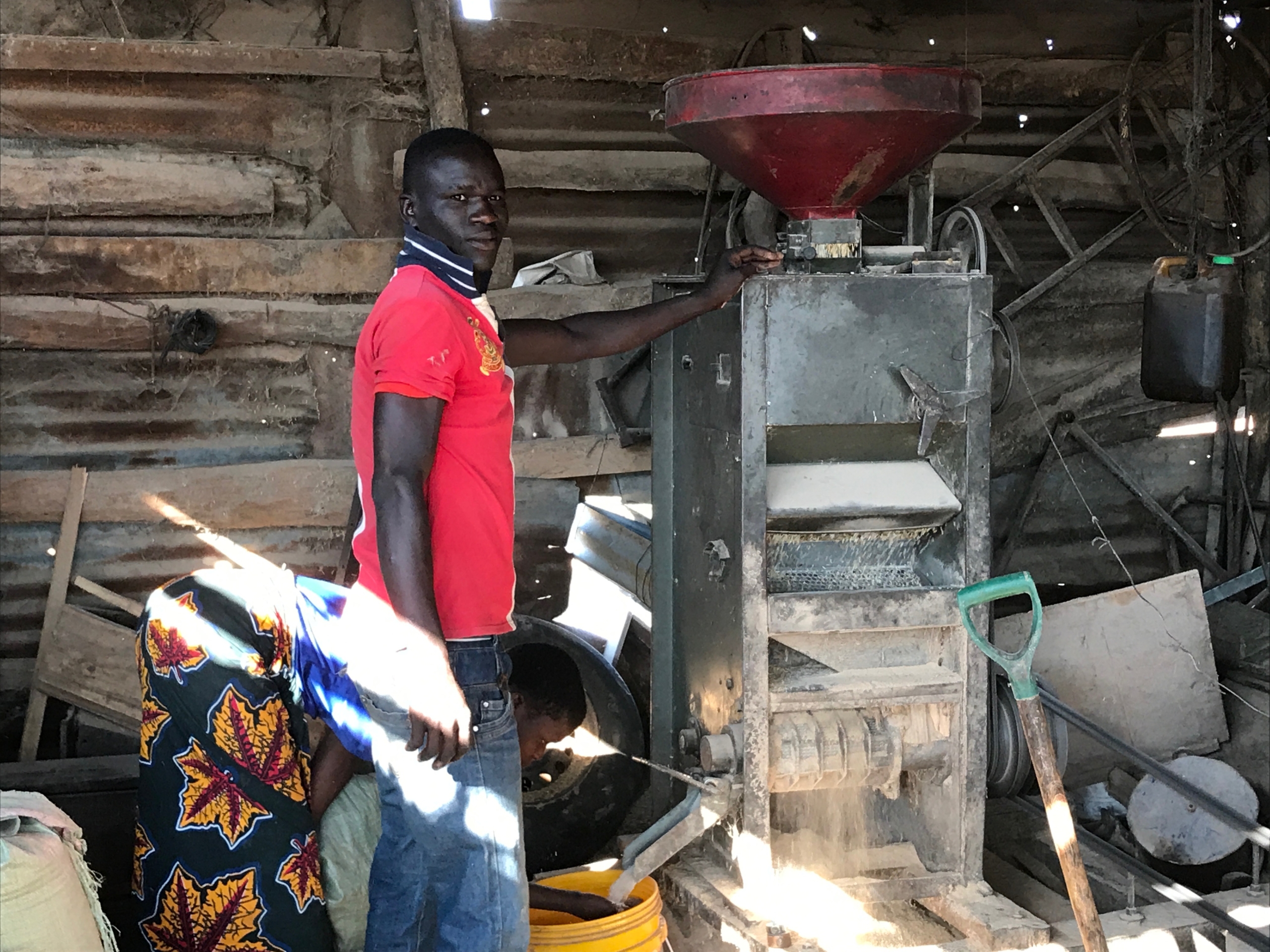 Looking Beyond Appliances: Systemic Barriers to Minigrid Demand Stimulation
Looking Beyond Appliances: Systemic Barriers to Minigrid Demand Stimulation The Clock is Ticking on Energy Access: Exploring Factor[e] Ventures’ Big Bet on Mini-Grids
The Clock is Ticking on Energy Access: Exploring Factor[e] Ventures’ Big Bet on Mini-Grids